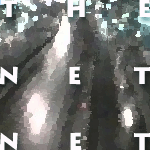|
|
|

|
PRINCIPLES AND POLITICS IN A SELF-MADE NATION: Books about Jefferson, Racism, History, and Mythmaking
by Caitlin Burke
|

|
|
On Thomas Jefferson:
Andrew Burstein
Joseph Ellis
Fawn M. Brodie
Annette Gordon-Reed
|
The 20th Century continues to turn out biographies of Thomas Jefferson
at a rapid clip, from huge studies such as the 6-volume work of Dumas Malone
to shorter works, such as Andrew Burstein's The
Inner Jefferson: Portrait of a Grieving Optimist and Joseph J. Ellis's
American
Sphinx: The Character of Thomas Jefferson. Although they represent
a variety of angles, there's one point they agree on: Thomas Jefferson did
not have a sustained relationship with Sally Hemings -- much less father
her children. As Burstein notes:
Knowing what we do about Jefferson's Head and Heart, that the first made him generous, and the second ruled his actions, it seems highly unlikely that because light-skinned Sally Hemings bore light-skinned children at Monticello they were necessarily fathered by Monticello's master.
Ellis has remarked in interviews that Jefferson's "character" would not have allowed him to have such a relationship. The evidence they adduce seems to boil down to "He couldn't have because he couldn't have."
For Fawn Brodie, a psychoanalytic historian, it was entirely possible that
Jefferson and Hemings had this relationship, and her 1974 book, Thomas
Jefferson: An Intimate History opened the debate on a new scale.
Annette Gordon-Reed, in Thomas
Jefferson and Sally Hemings: An American Controversy, offers the
most recent argument in favor of the Jefferson-Hemings relationship, and
she goes on to criticize historians for systematically devaluing the testimony
of blacks during the course of investigations of the story. As Gordon-Reed
notes, Brodie's work may have methodological flaws, but so does everyone
else's.
|
|
|
On Race:
Theodore W. Allen
Noel Ignatiev
Andrew Hacker
|
One of those principles on which the United States is based, a self-evident truth in Jefferson's eyes, is that "All men are created equal." But what did "equal" -- or for that matter "all men" -- mean to an elitist Virginia planter and slaveowner? Judging by Congressional agreements to treat slaves as "three-fifths" of a person when determining populations for representation, those men must have been White.
Alexis de Tocqueville, on his visit in the 1830s, described the United States and its inhabitants as "Anglo-Americans", but this category came to include all European immigrants, first the also-Protestant Germans but later the more "problematic" ethnic groups as well, the Italians and Irish and even the Jews. Like the framing of the Declaration itself, "who is White" was ruled by a politics of consolidation, a national agreement.
The Invention of the White Race, a two-volume work by Theodore W. Allen (Racial Oppression and Social Control (Vol 1) and The Origin of Racial Oppression in Anglo-America (Vol 2) ) seeks to describe the origins of this peculiar concept, tracing the incorporation of a variety of European groups into a monolithic "White" race in the United States. Inviting Catholics in particular into this racial construct set the stage for America's central social opposition of white against black -- simultaneously articulating the division itself and coopting its potentially most threatening opponents: Irish Americans.
This argument is echoed in the work of Noel Ignatiev, who, like Allen, is a scholar with a labor background, in his How the Irish Became White, which concentrates on the Philadelphia Irish community. Andrew Hacker's Two Nations: Black and White, Separate, Hostile, Unequal brings this argument into the present, discussing the implications of a democracy based on racial assumptions for family life, income, employment, education, politics, and crime.
|
|
|
On History and Mythmaking:
Howard Zinn
Kenneth Davis
James W. Loewen
Herbert R. Kohl
Richard Shenkman
|
Numerous books, from Howard Zinn's A
People's History of the United States: 1492-Present to Kenneth Davis's
Don't
Know Much About History: Everything You Need to Know About American History
but Never Learned, are happy to spell out what the history books
get wrong. These books work both to correct misinformation from history
classes and to reframe the focus of American history in order to incorporate
more segments of our multicultural society.
James W. Loewen's Lies
My Teacher Told Me: Everything Your American History Textbook Got Wrong
also gives prominence to a discussion of why history is written this way,
tackling the broad gap between competent, sophisticated history -- clearly
widely available in the United States, at least at the college level --
and the poor scholarship evident in textbooks for the K-12 set.
Herbert R. Kohl's Should We Burn Babar? Essays on Children's Literature and the Power of Stories includes essays treating themes such as the purpose of education in the United States, the value (or danger) of Barbie, and quality of scholarship in children's books. Kohl even proposes a Rosa Parks test (very few historians pass it, in school textbooks or elsewhere) and proposes a new imagery for history that emphasizes teamwork -- which brings us back to labor history.
It also brings us to storytelling for an educational purpose. It certainly feels dishonest to use apocryphal stories with historical characters for this end, but of course American educational materials do this regularly with myths about figures such as Thomas Jefferson and ideas such as equality. Still, these myths serve a purpose in articulating ideals, and some of our myths were created deliberately in the course of the American Revolution and subsequent celebrations of it. As Richard Shenkman argues in "I Love Paul Revere, Whether He Rode or Not", the danger lies not in perpetuating myths but in failing to recognize them for what they are.
|
|
|
|



